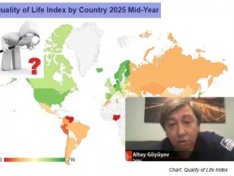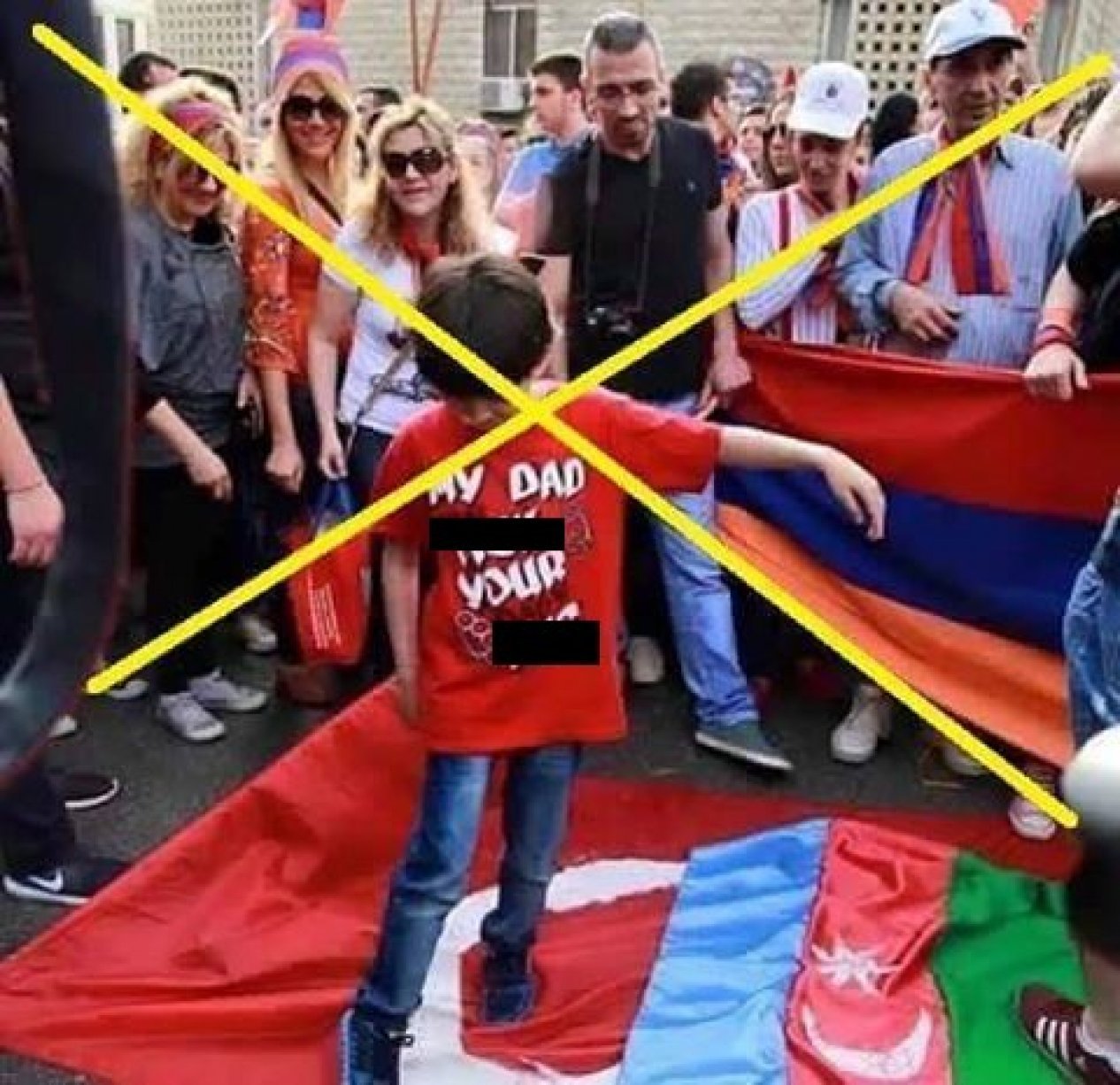
On July 15, 2022, Armen Grigoryan, a well-known Russian blogger, director and producer detained in Armenia, who was also one of popular activists in Armenia due to his Armenian origin, died while in the courtroom. According to what the Armenian media reported, during the court session, when lawyer Ruben Melikyan presented the arguments of the defense, Grigoryan's health deteriorated sharply and he lost consciousness. (Source)
Faktyoxla Lab. investigated some of the circumstances hidden behind the death of Armen Grigoryan, his speeches and the discomfort felt by the Armenian community from these speeches, and the reasons why the word "Turkish" behind the producer's arrest is perceived as an object of hate.
First of all, Faktyoxla Lab. has touched on this subject before. The fact that it is a crime to call someone a Turk in Armenia has always been a hot topic. Opponents of Prime Minister Nikol Pashinyan and the military are in a much more hostile position to Turkey and Azerbaijan. They even accuse Pashinyan of surrendering to Turkey and Azerbaijan. The vanguard forces against Pashinyan, the organizers of the protests on the streets of Yerevan, describe Pashinyan and his supporters as "Turkish rats," "Turkish bastards." Armenian police filed a criminal case against a Facebook user who insulted Nikol Pashinyan, commenting under the prime minister's photo in September last year. (Source)
The police stated that the suspect violated article 137.1 of the Armenian Penal Code: "Grave insult to a person due to public activities. The case was initiated without a complaint from the alleged affected party."
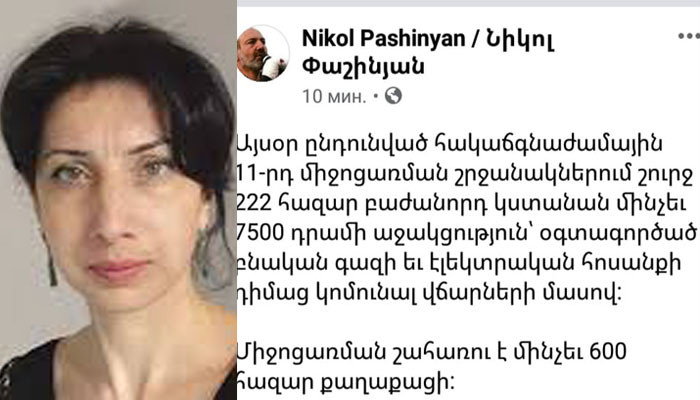
In early September, local media reported that the police were looking for a social media user named Hrant Avetisyan, who allegedly wrote an offensive comment on Pashinyan on Facebook. Besides, according to the reports in the Armenian media, three criminal cases were brought against Sona Agekyan, one of the founders of the "Alternative Municipality" initiative and a former member of the Yerevan Council of Elders. Agekyan, facing a prison sentence of one to three months, is also charged with insulting a state official for calling Nikol Pashinyan a "Turk" on social media, per Article 137.1 of the Armenian Penal Code. The preliminary investigation has been completed, and Agekyan is awaiting trial soon.
Agikyan told the press: "The indictment shows that this person's reputation was insulted because I called him a Turk on Facebook. I am still of the same opinion and stand by what I have said. I will repeat the same words in court."
Local media coalitions have condemned such criminal cases as "unacceptable restrictions on freedom of expression." At the same time, Marc Behrendt, Director for Europe and Eurasia programs at Freedom House, said the changes "will hamper freedom of expression and threaten the financial existence of the media in the country."
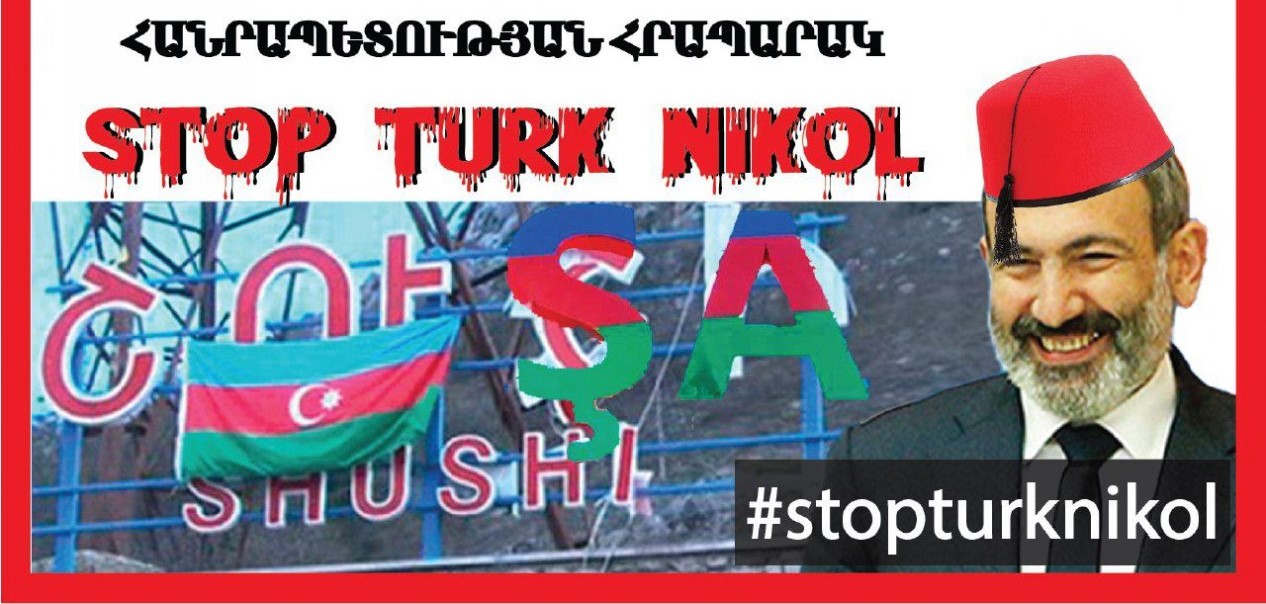
But, ironically, Armen Grigoryan's criminal act was subject to a crime committed under article 226, part 2, of the Armenian Penal Code (public call to violence, public justification or propaganda of violence). He was arrested for calling Armenians living in the Shirak and Ararat provinces "Turks", not Armenian Prime Minister Nikol Pashinyan. Based on interviews where Grigoryan claimed that the inhabitants of the mountainous areas of Armenia were purebred Armenians and that the inhabitants of the valleys were "half-blood and half-Turkish", the National Security Service of Armenia decided to arrest Grigoryan. Sputnik Armenia wrote that ahead of an opposition rally planned to be held in Gyumri, the video circulated online and caused profound anger among residents of the Shirak province.
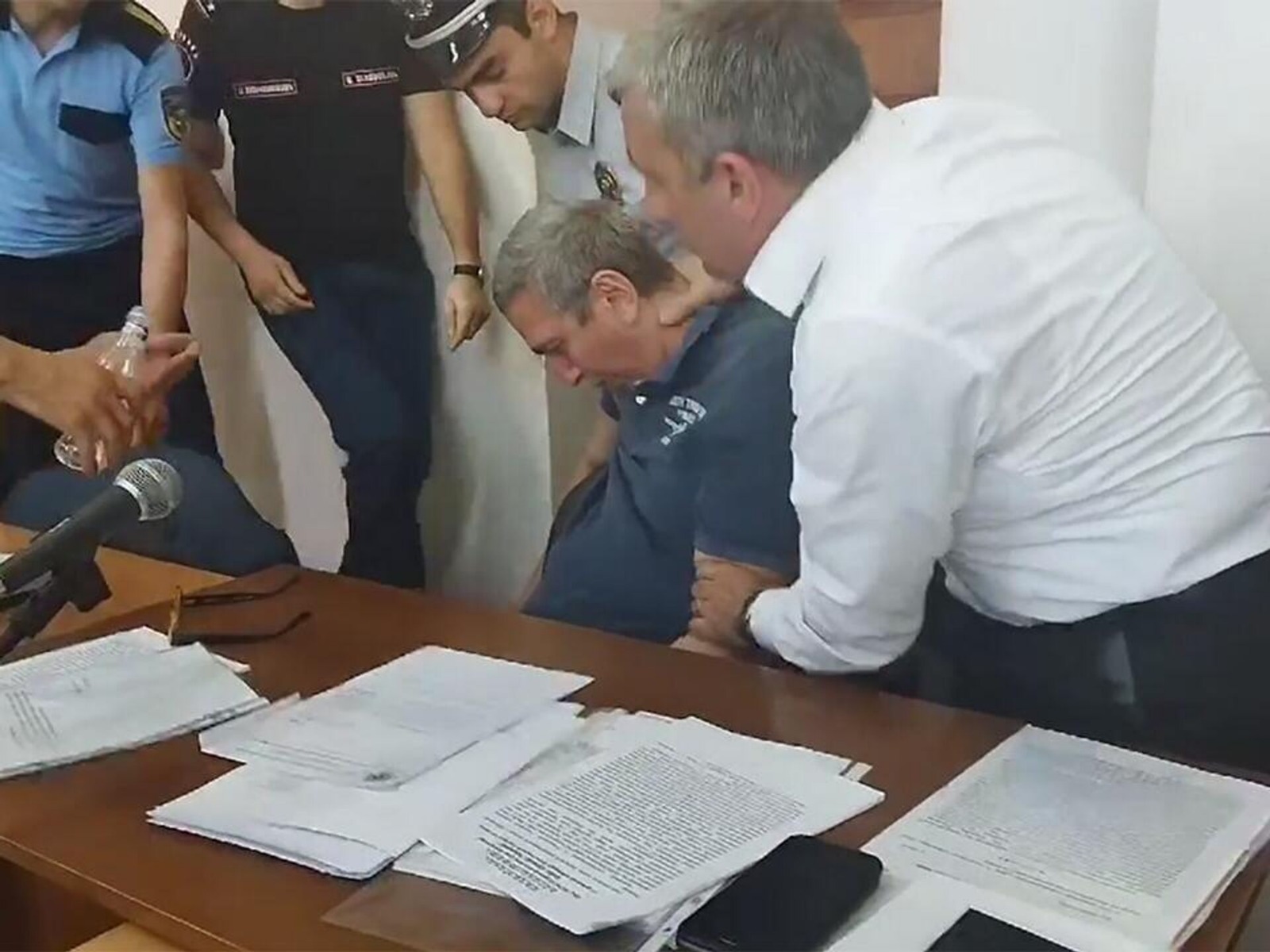
Grigoryan's lawyers, Ruben Melikyan and Armen Mashinyan, insisted that only political motives were behind the arrest.
They told the press: "A citizen faces classic political persecution for his public statements. Earlier, a supporter of [Armenian Prime Minister Nikol] Pashinyan had used similar or more vulgar expressions against the Armenians of Karabakh, but, oddly enough, he was not arrested. And suddenly, criminal proceedings were initiated against an activist who positioned himself as an opponent of the Pashinyan regime. According to Council of Europe criteria, when supporters of the authorities are released for the same actions and dissidents are imprisoned, they qualify as political prisoners."
The example we will give now is actually the kind that will mirror the process that developed up to the Armen Grigoryan case in Armenia. According to Agos, in 2017, as the beneficiary of the 10th Turkey-Armenia Travel Grant of the Hrant Dink Foundation, Dr.Tirşe Erbaysal Filibeli and communication expert Prof. Dr. Yasemin Giritli İnceoğlu went to Yerevan. As a result of the interviews they made with two journalists working at the Media Initiatives Center operating in Yerevan, Anna Barseghyan and Gegham Vardanyan, the point they reached is as follows: On social media, Armenians, especially opinion leaders, are constantly insulting Turkey and Azerbaijan. Their expressions are roughly as follows: "Azerbaijanis are like sheep, Turks are our enemies, Azeris and Turks are essentially the same, there is no difference."

Armenian journalists state that the insults or foul language used about Turkey are almost as follows: "Armenian media only reports on bad things happening in Turkey. They are particularly focused on the issue of genocide. The message that there is no democracy in Turkey is constantly given, but the situation in Armenia is never mentioned. Turks are our enemy. Since the melody of the Armenian songs is similar to Turkish and very popular in Turkey, should we be happy because Turks love it?"
A few sayings regarding prejudice patterns are also given as examples: "All Turks are the same, they cannot be trusted.", "Are you a Turk?", "Even a Turk would not do this."
In conclusion, both journalists agree that since they are a homogeneous society, they need multiculturalism and diversity. Only in this way can they break these prejudices. Gegham emphasizes that all this stems from an education problem, that education should be adopted as a state policy, that the media should not reproduce prejudices and stereotypes, and that it is a necessity to abandon the most common stereotypes such as "Armenians are the best nation, God chose us as the best nation in the world."
He believes it is a matter of time, and he is hopeful for the next generation, if not for this generation. According to him, another critical problem is that journalists and editors are not even aware that they are spreading hate speech. He states that this should be taught to them.
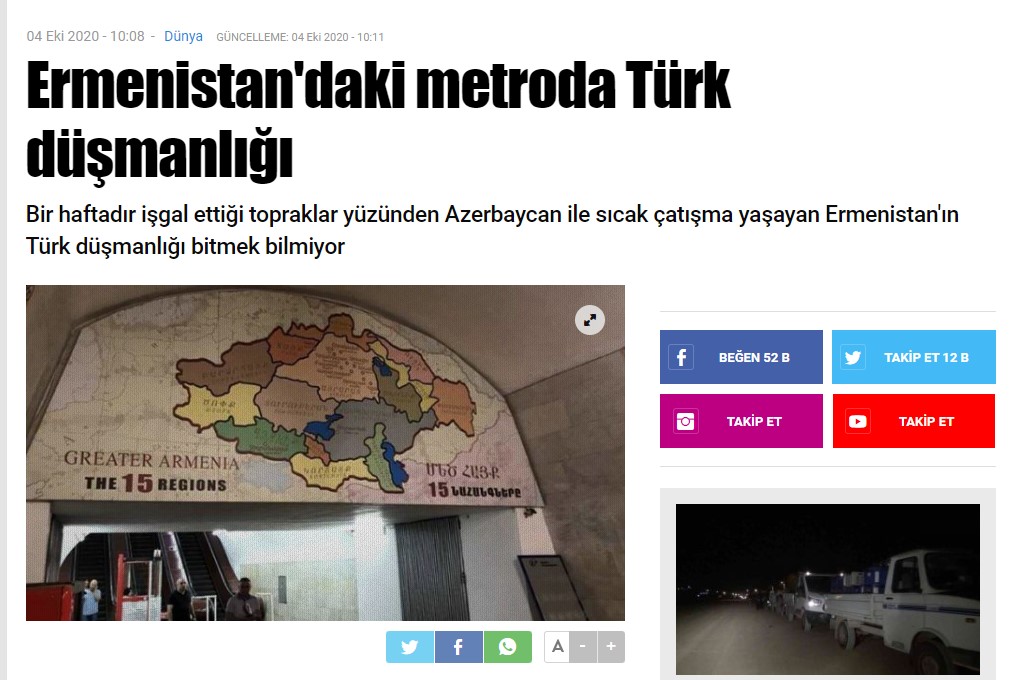
Anna Barseghyan is not very hopeful in this regard: "They say that the new generation of young people will fix it, but the truth is that young people are like their families; like father, like son."
The hatred of the Armenians is not only against the Turks. They also display the same hatred towards other nationalities who are also citizens of Armenia. They have similar problems with other ethnicities, which only make up 2% of the country's population. Assyrians' issues of immigration from their own villages, the fact that the Yazidi activist Sashik Sultanyan is still under arrest, the Russians' church in Lori is still closed, the Greeks living in Madan village of Lori province are without school, hospital and transportation. The Holocaust Memorial in the center of Yerevan often suffers from Armenian barbarism. These are the biggest proof of the hatred that Armenians feel not only against Turks and Azerbaijanis, but also against different ethnicities living among them.
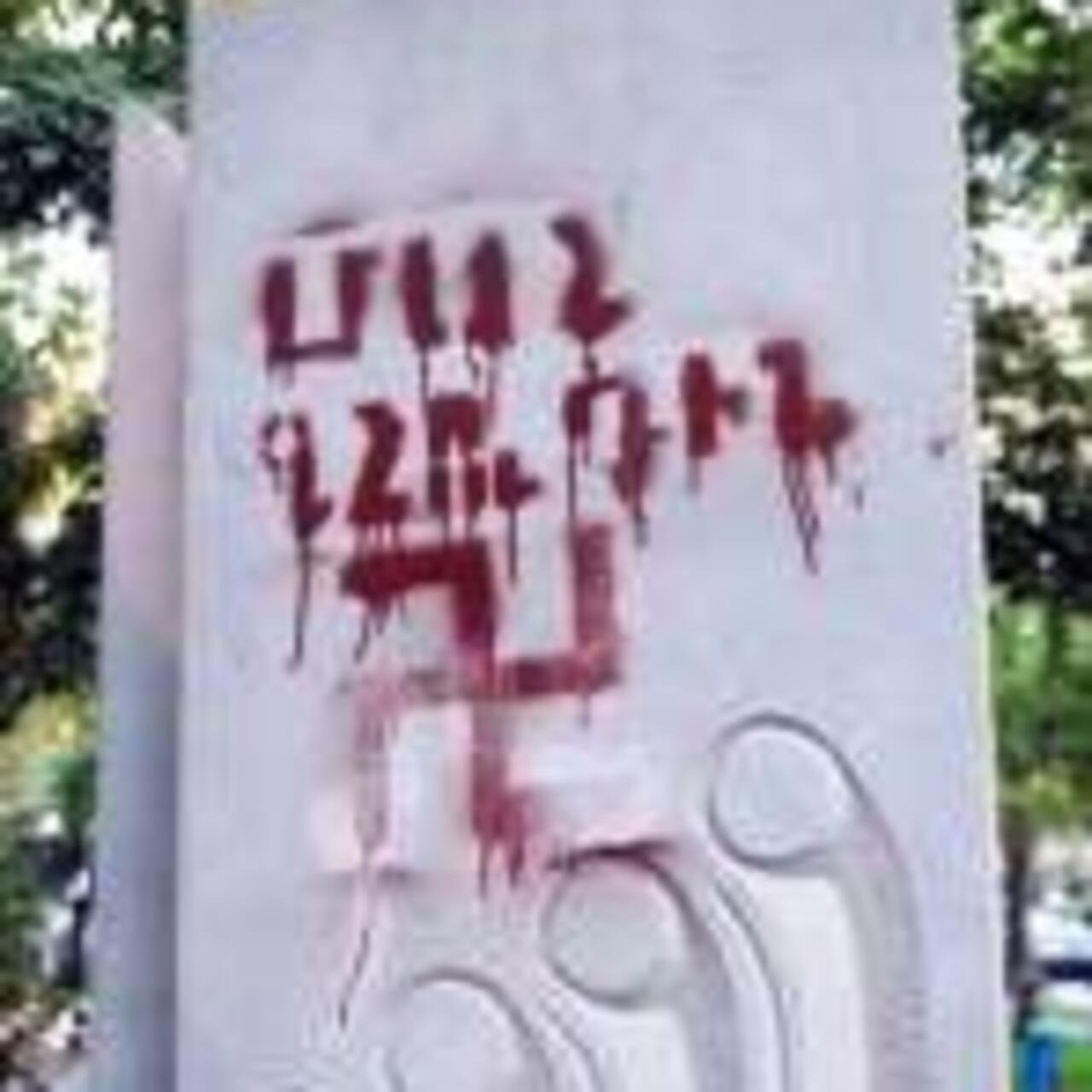
As can be seen, the case of Armen Grigoryan's identification of Armenians in the Western Zangazur region of Armenia as "Turks" is genuine and is just one of the details unearthed. There are hate speeches that cannot even be repeated; you think for yourself now...



